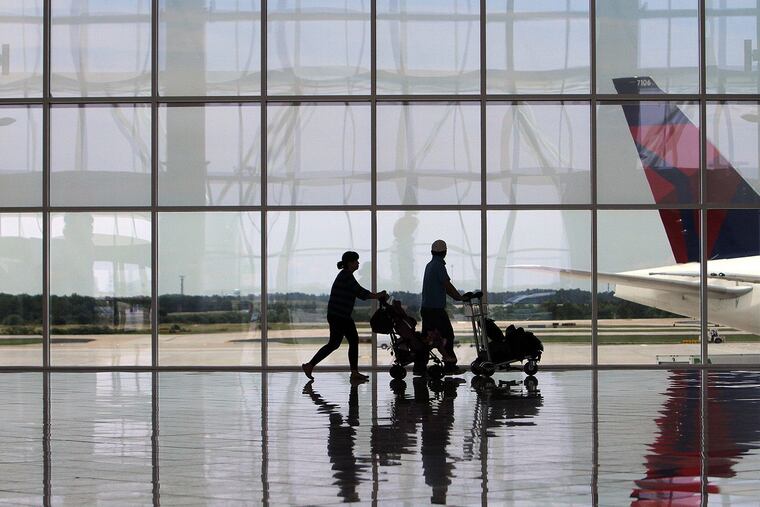Travel Navigator: Value your time instead of just saving some money
Online travel sites promote deals that include flights with long connections or circuitous routings involving multiple carriers, and hotels located far away from your intended destination.

How valuable is your vacation time?
That can be a difficult question to answer, even for someone like Mike Golpa, a busy dentist from Las Vegas.
"I have taken longer flights and endured longer stopovers when I’ve had the time," he says. "When I don’t have the time, I’ll pay the higher fees and go with the shorter wait and better use of my time. I prefer to go slow and relaxed than to feel rushed and harried."
Almost all travelers must make that determination at some point — time or money? Online travel sites promote deals that suck time and resources from your trip. These include flights with long connections or circuitous routings involving multiple carriers, and hotels located far away from your intended destination.
There’s a reason these offers are appealing: Travelers don’t value their time. Last year, the annual Allianz Vacation Confidence Index concluded that about half of working Americans would accept a job with no vacation time in exchange for more money.
As travelers prepare for spring break vacations, they could end up wasting more time in transit than they spend at their destinations. Stopping the time-suck has to start early, when you plan your trip. Experts suggest running a few quick calculations before you click the “book” button.
It’s difficult to exaggerate the lengths to which some travelers will go to save a few dollars. I’m continually amazed that people will spend hours online to save $5 or $10 on a hotel room. Many of these people are educated professionals whose time can be worth hundreds of dollars an hour.
Peter Lombard, chief executive of Globe Guides, a travel company based in Dayton, Ohio, had a client who rejected a nonstop flight in favor of one with a stopover to save $34. That connection obviously took more time and increased the risk of a delay. But he’s not judging. "I once took a 5 a.m. flight to save $20," Lombard confesses.
“The biggest mistake I see people make is not doing their research about the true costs of travel, both in time and money,” says Paris-based Rahaf Harfoush, a digital anthropologist and author who studies changes in organizational behaviors. For example, one of her friends traveling to New York stayed in town an extra day to save on airfare.
"But she still had to pay $300 for a hotel, which was more than she would have paid if she’d left a day earlier," she recalls.
Andrea Norfolk, founder of Shoreline Destinations, a Maryland-based travel agency specializing in destination weddings, says many travelers focus too much on the cost of the trip.
"I’ve found that most people initially have a dollar figure in mind when they start the vacation planning process," Norfolk says. "They don’t realize until too late that bargain-seeking yields poor results."
Instead, she says, ask yourself: "What kind of experience do I want?"
For instance, most travelers prefer getting to their resort by midafternoon so they have the remainder of the travel day to settle in. “They will sacrifice saving some money to spend more on a better flight schedule,” she says. “It’s rare that I have clients who want the cheapest route of getting somewhere.”
On the other hand, Sahara De Vore, founder of the Travel Coach Network of travel advisers, says vacations are about more than available time on the ground.
"It is important for everyone to acknowledge their intent for their trip," she says. "You have to weigh what matters. Determine if saving money where you can matters more to you and your travel goals than having more structure in your time."
Only then should you set a budget for your trip. You’ll have a much better idea of how much time and money you want to spend traveling, and which is worth more to you. Should you drive or fly? Can you afford the time to make a connecting flight or two, or do you need the nonstop flight? Do you need a hotel in town, or can you get a vacation rental in the suburbs?
Your vacation time is far more valuable than you might think. Don’t let an airline, hotel, or online travel agency lure you into devaluing hard-earned leisure time. That might benefit the company, but almost never you.
Christopher Elliott is a consumer advocate, journalist, and cofounder of the advocacy group Travelers United. Contact him at elliott.org.